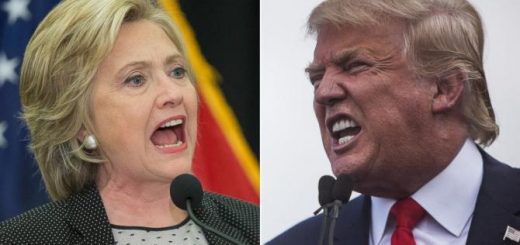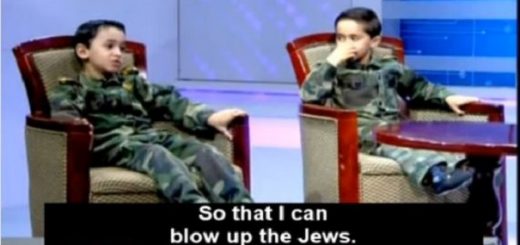Response from YCT: Yeshivat Chovevei Torah’s Position on Torah MiSinai and Partnership Minyanim

It was only a matter of time until YCT issued a response to the open letter of 11 of its graduates (please also see here), in which these graduates affirmed their belief in Torah Mi-Sinai and their opposition to “Partnership Minyanim” (public prayer services led in part by women). The open letter of these 11 men was prompted by a perception among some that YCT does not unequivocally espouse Torah Mi-Sinai, as well as by support for Partnership Minyanim on the part of some senior YCT leaders.
Although the YCT response reads pretty nicely, there is much to ponder. Here is the full text of the response:
We would like to take the opportunity to clarify our position on the matter of Torah MiSinai and the matter of Partnership Minyanim. These are two different issues which should not be lumped together.
The first represents an unequivocal boundary line for Orthodoxy. Belief in Torah MiSinai, as defined by Hazal and the Rishonim, and as understood by the Torah-committed community throughout the ages, is non-negotiable. It is the underpinning of our religious life, the authority of halakha, and our commitment to Torah. All teaching at Yeshivat Chovevei Torah always has and always will reflect this belief.
Women’s aliyot and Partnership Minyanim are a different matter altogether. This is a new issue that is currently being vigorously debated within the Orthodox community. As with any recent phenomenon or new question in halakha, it is wholly appropriate and expected to have debate and dissenting views, addressing issues of halakha, public policy, and advisability. This is how the process works, and it is important to continue to engage in Torah dialogue to enable the necessary halakhic discourse to takes place.
While this process continues, individuals who choose to rely on those positions that support Partnership Minyanim are making choices that are legitimate within Orthodox halakha. Thus, some of our students, rebbeim and musmakhim choose to daven at such minyanim. Others, for reasons relating either to halakha, tradition, policy, or personal comfort, choose not to do so. This is all part of a healthy debate going on within our community. As a Modern Orthodox Yeshiva, we respect both sets of choices on this issue.
We hope that in the future we will have the opportunity to continue to clarify our positions on the central issues facing us as a Modern Orthodox community.
Regarding Partnership Minyanim – the simpler of the two topics under discussion – the most ranking and preeminent of poskim have forbidden them. (Please see, for example, here and here, as well as here.) YCT’s presentation of the matter as an open area of dispute in which one can choose how to conduct himself is quite perplexing, to put it kindly.
I accept the assertion that YCT, in its classes, presents Torah Mi-Sinai as fact, and that no other views on the matter are presented as acceptable beliefs. That being said, senior YCT leadership, as well as others whose ideas are part of the YCT sphere, have expressed public views that bring into question the principles of Torah Mi-Sinai and the historical truth of the Torah.
For example:
We need to debate what heresy is, not whether it is allowed… A promising direction is to revisit the philosophical meaning of “belief,” and examine to what degree religious belief can be understood as being a-factual; a faith-proclamation, not a factual postulate. Defining belief as a-factual would allow a person of faith to “believe” religiously in the historicity of the biblical narratives and at that same time entertain the postulates of Bible critics.
And, from an Israeli rabbi who sits on the YCT advisory board and lectures at YCT when visiting the US:
It is possible, then, to accept that the Torah in its current form is the product of historical circumstance and a prolonged editorial process while simultaneously stubbornly asserting the religious belief that it none the less enshrouds Divine revelation.
And this, by another senior YCT leader, explaining that even though the Written Torah commands the obliteration of Amalek, the mitzvah has been consciously excised and reformed by rabbinic authorities into a verbal recitation:
We have erased not Amalek, but the mitzvah to destroy them.
It is a story of moving from the passage in Devarim, from the charge of timche – that you shall blot out – to the passage in Shemot, and the declaration of macho emche, that I, God, will blot out. It is the transferring of the war, from B’nei Yisrael to God. Milchama laHashem bi’Amalek, a war of God against Amalek. Midor dor. The story that we have chosen to tell, from generation to generation, is the story of Shemot, the story of God’s war, not of ours. The story of a war not against a people, but against violence, against evil.
We are truly an amazing people. We have taken the mitzvah to destroy Amalek, a mitzvah that disrupts our moral and religious order, a mitzvah that embraces violence and, through interpretation, through choosing how we will tell the story, we have transformed it into a mitzvah of memory, a mandate to restore moral order and to repudiate violence.
While this does not deny that God commanded the obliteration of Amalek, it speaks volumes about this YCT leader’s presentation of the Oral Torah and halachic process.
One of the principal leaders of PORAT, the Open Orthodox lay organization, who is also a YCT faculty member, wrote:
Did Moses actually write that Abraham pursued his foes until “Dan” in order to rescue Lot (Gen. 14:14), or was the place name a later editorial insert to indicate what by then had become a well-known locale? … Perhaps most tellingly, did Joshua order the sun to stop (Josh. 10:12), or was this either a mythic tale or a memory of a solar eclipse that could be explained only as a miracle at that time? Or, on perhaps the most basic level, did all of humanity descend from Noah’s three sons (Gen. 10), were there really several million Israelites wandering in the desert for 40 years (Num. 2, 26), and did diversity of language result from an ill-fated attempt to build a tower in ancient Babylon (Gen. 11:1-9)?
Just today, a YCT graduate who serves on the rabbinate of Open Orthodoxy’s foundational congregation posted:
What will happen when our lives on this earth are over and we go up to meet God?
I’ve been thinking about that big question in the context of a lot of talk lately about dogma, denominational schism, etc. The conversations are stimulating and thought provoking but I think they are missing that big question.
Because when you die, I don’t think God will ask you: of the millions of denominations on earth, which kind of religious denomination were you? This kind? That kind?
I think God will ask you: were you kind?
I don’t think God will ask: how were you seated when you prayed? What liturgy did you use? Which gender did you pray with?
I think God will ask: did you pray?
I don’t think God will ask: was your spiritual teacher a man or a woman? If it was a woman, did you call her a Yoetzet, a Maharat, or a Rabba?
I think God will ask: did your spiritual teacher guide you towards me?
I don’t think God will ask: did you believe with perfect faith that I authored every word in the Bible?
I think God will ask: did you listen to my voice?
While many of these credos embody kind and noble ideals, the bottom-line message is that adherence to Halacha and belief in the Torah do not ultimately matter.
I was gratified to read the open letter of the “YCT 11”. But when YCT leadership itself is unclear about the crucial issues at hand – as it preaches one thing in the classroom and something different at times in the media – and when a serious halachic issue that has been adjudicated by the most senior of poskim is deemed an open question which each individual may choose to approach as he sees fit, one cannot but be extremely concerned and disappointed. The perceptions that YCT seeks to dispel seem not to be unfounded.
Torah Judaism rests on a comprehensive platform of beliefs and commitments, of which the issues discussed in the open letter of the YCT 11 and the YCT response are but a few. Other major causes championed by Open Orthodoxy, such as ordaining women as rabbis, legalizing gay marriage/shuls granting family membership to same-sex couples, and interfaith and interdenominational religious dialogue, have not been addressed.
Let’s see what happens, with eyes open and minds alert, as there is much more here than meets the eye.




The good news is the questions that will be asked have already been distributed so no need to guess – see Shabbat 31a:
Raba said, When man is led in for Judgment he is asked, Did you deal faithfully [i.e., with integrity], did you fix times for learning, did you engage in procreation, did you hope for salvation, did you engage in the dialectics of wisdom, did you understand one thing from another.
She-nir’eh et nehamat Yerushalayim u-binyanah bi-mherah ve-yamenu,
So then why do anything else? Pretty sure rabba kept Shabbat and kosher.
Sure. But imho one might want to be sure they had these bases covered first
kt
Again–you are creating an artificial straw man when no “schism” is really apparent.
I get it–you want conformity and uniformity. For most American Jews, however (including a vibrant segment of its Orthodox population) diversity is a source of strength and growth. For you it is clearly a danger and a threat.
Rabbi you know this stuff better than me but what about yct dayan zev farber? Isn’t that even more damning?
Rabbi Gordimer, when you write: “That being said, senior YCT leadership, as well as others whose ideas are part of the YCT sphere, have expressed public views that bring into question the principles of Torah Mi-Sinai and the historical truth of the Torah…” i am incredulous. talmudic sages and geonim, both lacking the knowledge discovered in the last hundred years, argued various details of torah mi’sinai and the historical truth of parts of the Torah.
while a few yct graduates have gone substantially further, compared to what is discussed in other forums, their views are troubling but hardly surprising. i suspect that like many practicing jews who hold more defined and radical views, they imagine they are creating the rationale for halakhic observance despite heretical views. it is still much too early to see how this evolves. personally, i worry more about a large population who has never even read anything that raises even mild challenges to what many view as increasingly primitive beliefs declared ikrei he’emunah.
I believe RAL stated something close to it is no mitzvah to make something an ikar emu nah which isn’t.
Argument as to details and the understanding of the events described in the Torah is a far cry and should not be confused with denial of the same and the bedrock elements of Malciyos Zicronos and Shofaros and our covenental relationship with HaSHem which is underscored every time we recite a birkas hamitzvah.
YCT would say they are arguing over details. They have constantly maintained Torah is minhashamayim. Have ever Rabbis Weiss, Lopatin etc denied that God revealed himself after yiziat Miriam in the mid bar?
Look at r z Farber’s website which yct has condoned by silence and its elevation of pluralism and inclusiveness at the expense of admitting that there are ground rules known as ikarei emunah
Thus, if you were around in the 60s the RAv and Dr Belkin condoned Rabbi I Greenberg” Is RHS responsible for every speech made by guests and alumni of Yeshiva? Is SRH responsible for everybTalmid of his? We’re the Rabbeim of Volozhin responsible for their talmidim?
Rabbi Gordimer, when you write: “That being said, senior YCT leadership, as well as others whose ideas are part of the YCT sphere, have expressed public views that bring into question the principles of Torah Mi-Sinai and the historical truth of the Torah…” i am incredulous. talmudic sages and geonim, both lacking the knowledge discovered in the last hundred years, argued various details of torah mi’sinai and the historical truth of parts of the Torah
I am incredulous that you are willing to conflate discussion about the precise meaning and content of the notion of Torah mi-sinai with outright dismissal or tendentious neo-Ishbitzy redefintion of the concept.
<i>i suspect that like many practicing jews who hold more defined and radical views, they imagine they are creating the rationale for halakhic observance despite heretical views.</i>
and yet they insist that they are the “real” voice of Orthodoxy.
<i>i worry more about a large population who has never even read anything that raises even mild challenges to what many view as increasingly primitive beliefs declared ikrei he’emunah.</i>
Why do you worry about them? The “many” who regard these people’s views as primitive are often historically ignorant people who are incapable of formulating or responding to a logical argument. If the people that you are so concerned about are getting simple and dogmatic information from Artscroll, well that’s better than getting simple dogmatic information from Hollywood or their Facebook feed.
neither hollywood nor artscroll are credible sources of unbiased knowledge. i continue to worry that some may chance upon sources who are or at least set out to be. if the only choices were artscroll or hollywood, God’s fairness could be seriously questioned! B’H there are many more.
Mycroft wrote in part:
“Thus, if you were around in the 60s the RAv and Dr Belkin condoned Rabbi I Greenberg”
Take a look at the YU Judaica book and ask yourself whether the above is accurate or whether RYG has painted the portrait of a persecuted and suffering intellectual who has engaged in what RAL ZL described as “intellectual imperialism” whereby RYG just could not and still doesn’t fathom why his views were never accepted as mainstream and whose POV by his own admission was already evolving into a post denominational POV, which was well documented in R D Berger’s review in Tradition of a book authored by RYG..
I was around during that period and certainly there were those who disagreed with RYG most noticeably RAL-but he taught in YU and to this day much of the left came from his students from that time period.
Ain Haci Nami.
Read RYG’s own account as to why he left in the YU Judaica book-I stand by my assessment which is based on his own “reasons”which RAL ZL strongly critiqued.
What does “Torah MiSinai” mean?
IMO a synonym for Torah minhashamayim- that Torah is revealed from God rather than man made.
“Revealed by God” is a very different proposition than “given by God to Moses all at once on Mt Sinai”.
I belive that Reform (certainly conservative) Judaism adhere to the former.
We don’t believe everything from Har Sinai-a little before eg Marah and much during our time in the Midbar. There is certainly much of CJ that does not believe in Torah from God-I intentionally did not use term Torah Misinai-much was given during 40 years
I would certainly add Yetzias Mitzrayim and Krias Yam Suf. I think that the fact that Chazal and Mfarshim citing various sources about Maaaseh Breishis, the lack of any ethical behavior between Adam and Noah and Noah and Avraham as well as the lives of the Avos and Imahos cannot be easily dismissed because the same was Kodem Matan Torah-an approach that works with respect to mitzvos given before Matan Torah, but not one that I would consider as having hashkafic validity to the lives of the Avos and Imahos.
Take a look at the Maamad Matan Torah of the CI which is printed at the end of the CI’s writings in OC on Hilcos Pesach. CI maintains that Moshe Rabbeinu was given Kol HaTorah Kulah and its tools of interpretation at Har Sinai, but that Moshe Rabbeinu instructed Klal Yisrael for various reasons as to many mitzvos in the Ohel Moed and at Arvos Moav as well during the course of the 40 years of travel in the desert.
Ok, so Orthodox believe “Torah MiSinai” doesn’t mean all at once on the mountain, but over a span of 40 years starting at Sinai?
Cconservatives also believe matan Torah started at Sinai. But they think it’s still happening. Is that the big dis replant between the two concepts of “Torah MiSinai”? It doesn’t seem like such a big difference. Also, don’t Orthodox believe it’s still happening in a way?
like many complex topics, there is multiplicity of views. kol mah she’talmid atid lechadaish, lo ba’shamayim he and eilu ve’eilu can lead to views that i find outside the parameters of classical rabbinic judaism. otoh, these terms can often be interpreted in an overly restrictive way. there are wonderful books that study these topics that are well beyond the scope of a blog post.
If the issue is complex, with a multiplicity of views and approaches even within Orthodoxy, then it seems disingenuous to take the most restrictive or literalist view, and use that as a litmus test with which to judge Open Orthodoxy.
Sadly few if any non Orthodox clergy believe that the Torah was revealed by God. IMO so far OO has not gone there. Will they? Only God knows but so far not.
Rabbi Grodimer,
Your alma matter has graduates such as Mordechai Kaplan and Steve Greenberg. Are we going to deligitamize YU based on their un-orthodox views